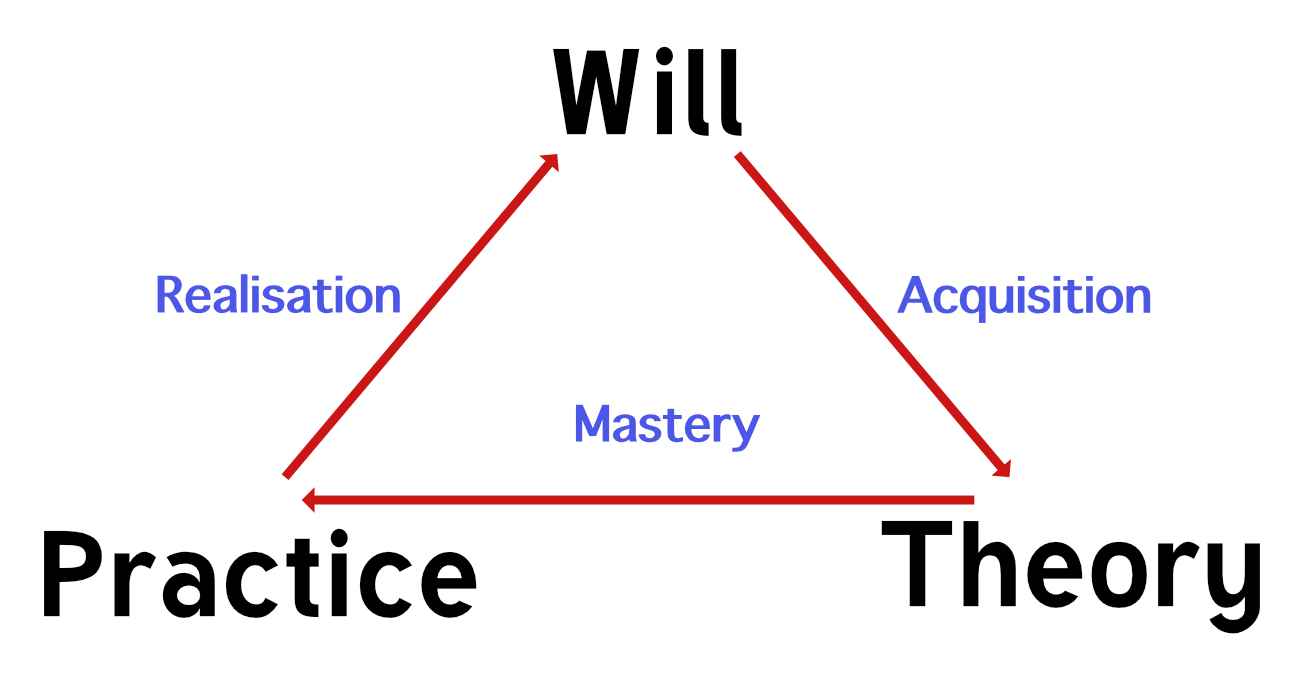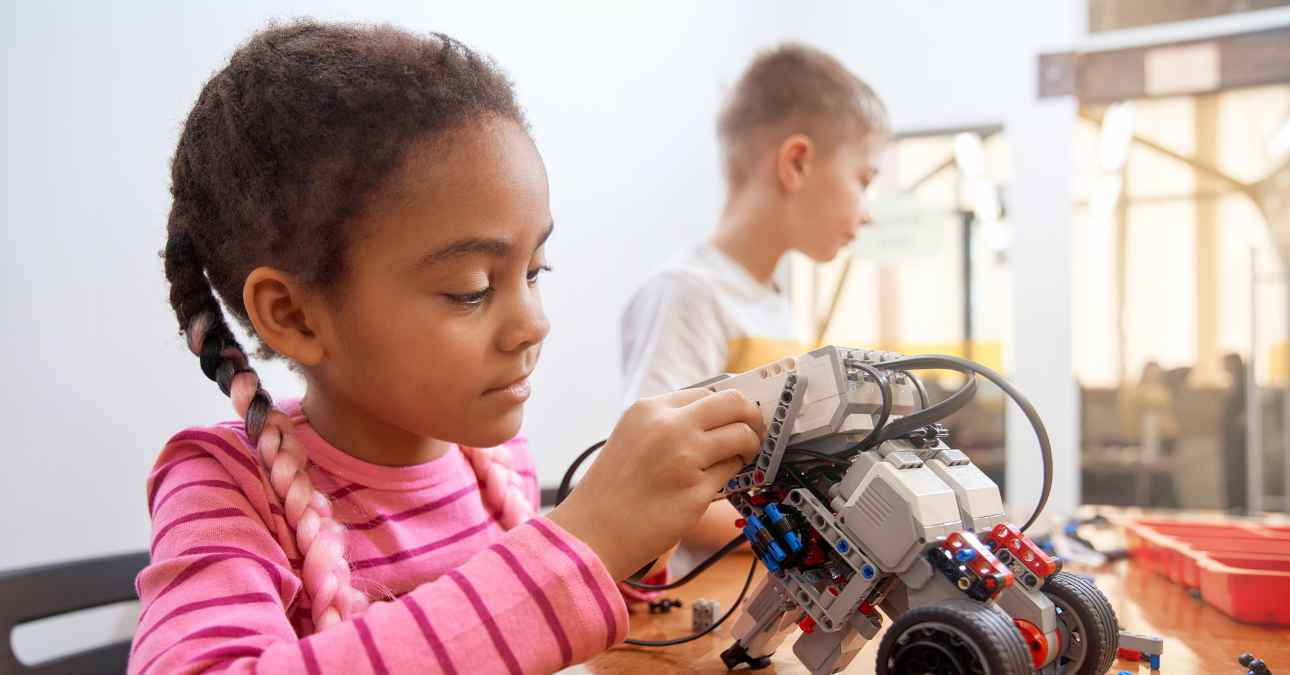LEARNING & CREATIVITY
"It is within him that man carries the solution to the ultimate mysterious problems of nature, it is only within himself that he can hope to find the key to the enigma of the world"
Arthur Schopenhauer (1788-1860)
1- Learning

"... knowledge and power are reciprocal; so that to improve in knowledge is to improve in the power of commanding nature, by introducing new art, and producing works and effect"
Francis Bacon (1561-1626)
(BACON'S ESSAYS and The Wisdom of the Ancients. p266 § 645)
Today the world is changing so fast and tomorrow, it will change faster. That is why, it is imperative
for everyone to develop the ability to learn faster; like we already talk about it here. But
in most countries around the world schools still don't teach students how to learn.
Here are steps to learn everything faster and easier:

1. Will
"Nothing is more important than to learn things by reason, it is the means of not forgetting them. And when these reasons are palpable and sensitive, the satisfaction is doubled."
Gottfried Wilhelm Leibniz (1646-1716),
(Collection of writings and letters : letter on the education of a Prince p553)
The best way to be motivated or willing to learn something is to try to satisfy a curiosity.
This reason will turn you into a life long learner, that is the reason why parents and educators should keep child's
curiosity alive. In a interview (Youtube channel: Tom Bilyeu) The famous American Astrophysicist
Neil deGrasse Tyson says:
"A adult scientist is a kid, who never lost his curiosity"
Although a professional motive can be also a good reason to learn new things, it is a limited one except those whose profession is Research .
2. Theory
"It is chiefly through books that we enjoy intercourse with superior minds. In the best books, great men talk to us, give us their most precious thoughts and pour their souls into ours. God be thanked for books. They are the voices of the distant and the dead, and make us heirs of the spiritual life of past ages. Books are true levelers. They give to all who will faithfully use them, the society, the spiritual presence, of the best and greatest of our race. "
William Ellery Channing
(Ben Carson : Thing Big, p13)
The most required skill for this part is reading and memorization.
Even if rote learning is the most demanded aptitude in
traditional school, despite all the efforts of learners to memorize their lessons, they are most of the time unable to do it.
The main reason is the lack of appropriate methods of memorization and lake of logical learning; secondly
Nutrition can be also a reason. But it can also have many
others reasons(dyslexia, attention disorder...).; This is why each case is unique
and require a particular solution.
In industry, the more we enhance the manufacturing process, the more product becomes cheaper and accessible to almost
everyone.
The same logic can be apply to the brain; more we know how the brain works, more we can develop
methods to use our brain more effectively. Some methods like : Loci method; Pomodoro Method are already really helpful.
Teaching is also another way to learn.
For more methods and details please enroll .
3. Practice
"Learning is activity"
Jean Piaget (1896-1980)
(Interview RTS: rencontre avec Jean Piaget, 1974)
M.I.T(Massachusetts Institute of Technologie) is know as the best institute on earth. It has for slogan the latin expression:"Mens et Manus", which means "Mind and Hand". It derives from a old learning philosophy know as "learning by doing". Which considers that nothing can really be deeply mastered if it is not practiced. This was well know by the ancients:
- In sub-Saharan Africa they have an old expression that says:
"if you want to learn go and help out"
- In Japan they say:
"The hand is an extension of the brain"
Despite all the efforts of M.I.T, its students still have problem with learning. Although it attracts the great mind in the world, learning is also problematic for them at the point they created the expression : IHTFP, it stands for "I Hate This Fucking Place".
That is why we are here to "Make Learning Great Again"
"If knowledge is a power, learning is a super power"
Jim kwik
(Interview: Tom Ferry (youtube channel))
2- Creativity

"If necessity is the Mother of invention, then gaming is its Father"
Ray Kurzweil (Inventor)
(The singularity is near p365)
The most important study on child's creativity is the "Project Talent," a research initiative funded by NASA and conducted in the 1960s. The study, which began in 1966, was led by psychologist Dr. George Land and his colleague Beth Jarman. The primary goal of this study was to assess the creative potential of children and how it changes over time.
Key Points of the Study:
1. Participants and Methodology:- The study initially tested the creativity of 1,600 children between the ages of 3 to 5 years old.
- These children were then retested at later ages, specifically at 10 and 15 years old.
- The test used was the same creativity test that NASA used to select innovative engineers and scientists.
- At age 5, 98% of the children scored at a "genius level" of creativity.
- By age 10, the percentage of children scoring at the genius level dropped to 30%.
- By age 15, it further decreased to 12%.
- When adults (average age 31) were tested, only 2% scored at the genius level.
- The study suggested that non-creative behavior is learned, implying that educational systems and societal norms may suppress natural creative thinking as children grow older.
- Dr. Land and his colleagues concluded that the traditional education system might be stifling creativity rather than nurturing it.
Impact and Goals:
- NASA's Interest: NASA's goal in supporting this research was to understand the creative potential of individuals, which is crucial for innovation and problem-solving in space exploration and other advanced scientific fields.
- Broader Implications: The study has had a significant impact on the field of education and psychology, highlighting the importance of fostering creativity from a young age and rethinking educational practices to better support creative development.
"The history of science and technical discoveries teaches us that humanity is poor in original ideas and creative imagination."
Albert Einstein (1879-1955)
(How i see the world, p248)
To the questions:
What is really creativity?
How creativity work? and
Can we learn to be creative at any age? or anyone can be creative?
Please join us to have the answer to your questions, and discover how many creative
men in history proceeded (Leonard Da Vinci, Nikola Tesla, Henri Poincaré, Ray Kurzweil, Dmitri Mendeleïev ...)
Conclusion
"Everyone carries within him a productive originality which is the very core of his being; and if he is aware of this originality a strange halo emerges around him, that of extraordinary. For most people, it is there something unbearable, because they are lazy and all originality is loaded with chains that are painful and heavy to bear."